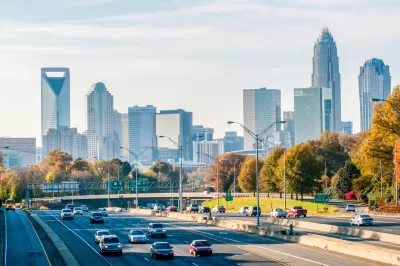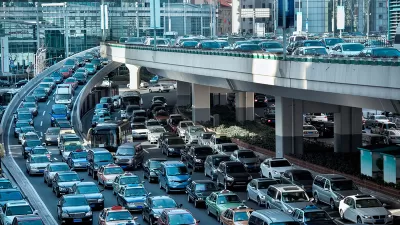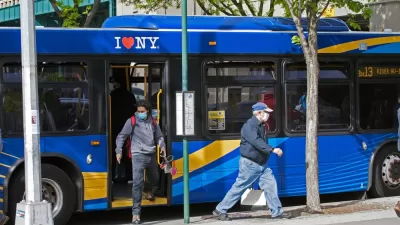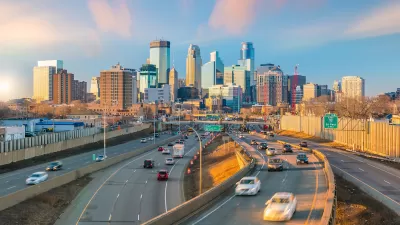With more people working from home since the pandemic, the area is seeing shorter commute times for cars and public transit.

In an article for WFAE, Tony Mecia describes how commutes in Mecklenburg County, North Carolina, home to Charlotte, have changed since before the Covid-19 pandemic.
Thanks to the sharp increase in remote work—triple the Charlotte residents work from home now than in 2019—commutes for those who do still go to a physical workplace are shorter. “In 2019, the average worker in Mecklenburg reported a commute to work of 26.7 minutes. In 2022, that average commute dropped to 24.4 minutes,” a 9 percent drop.
Another shift shows fewer people leaving for work early in the morning, with more people leaving home in the 8:00am hour, and traffic overall is more spread out throughout the day.
Over 80 percent of the county’s commutes take place in private vehicles. “Last year, the city of Charlotte set a goal that by 2040, it hopes to have what it calls a “50/50 mode share,” or have only 50% of commutes be people driving alone to work.”
FULL STORY: How Charlotte's commutes are changing: Shorter, later and fewer

Planetizen Federal Action Tracker
A weekly monitor of how Trump’s orders and actions are impacting planners and planning in America.

Map: Where Senate Republicans Want to Sell Your Public Lands
For public land advocates, the Senate Republicans’ proposal to sell millions of acres of public land in the West is “the biggest fight of their careers.”

Restaurant Patios Were a Pandemic Win — Why Were They so Hard to Keep?
Social distancing requirements and changes in travel patterns prompted cities to pilot new uses for street and sidewalk space. Then it got complicated.

DC Area County Eliminates Bus Fares
Montgomery County joins a growing trend of making transit free.

Platform Pilsner: Vancouver Transit Agency Releases... a Beer?
TransLink will receive a portion of every sale of the four-pack.

Toronto Weighs Cheaper Transit, Parking Hikes for Major Events
Special event rates would take effect during large festivals, sports games and concerts to ‘discourage driving, manage congestion and free up space for transit.”
Urban Design for Planners 1: Software Tools
This six-course series explores essential urban design concepts using open source software and equips planners with the tools they need to participate fully in the urban design process.
Planning for Universal Design
Learn the tools for implementing Universal Design in planning regulations.
Heyer Gruel & Associates PA
JM Goldson LLC
Custer County Colorado
City of Camden Redevelopment Agency
City of Astoria
Transportation Research & Education Center (TREC) at Portland State University
Camden Redevelopment Agency
City of Claremont
Municipality of Princeton (NJ)





























